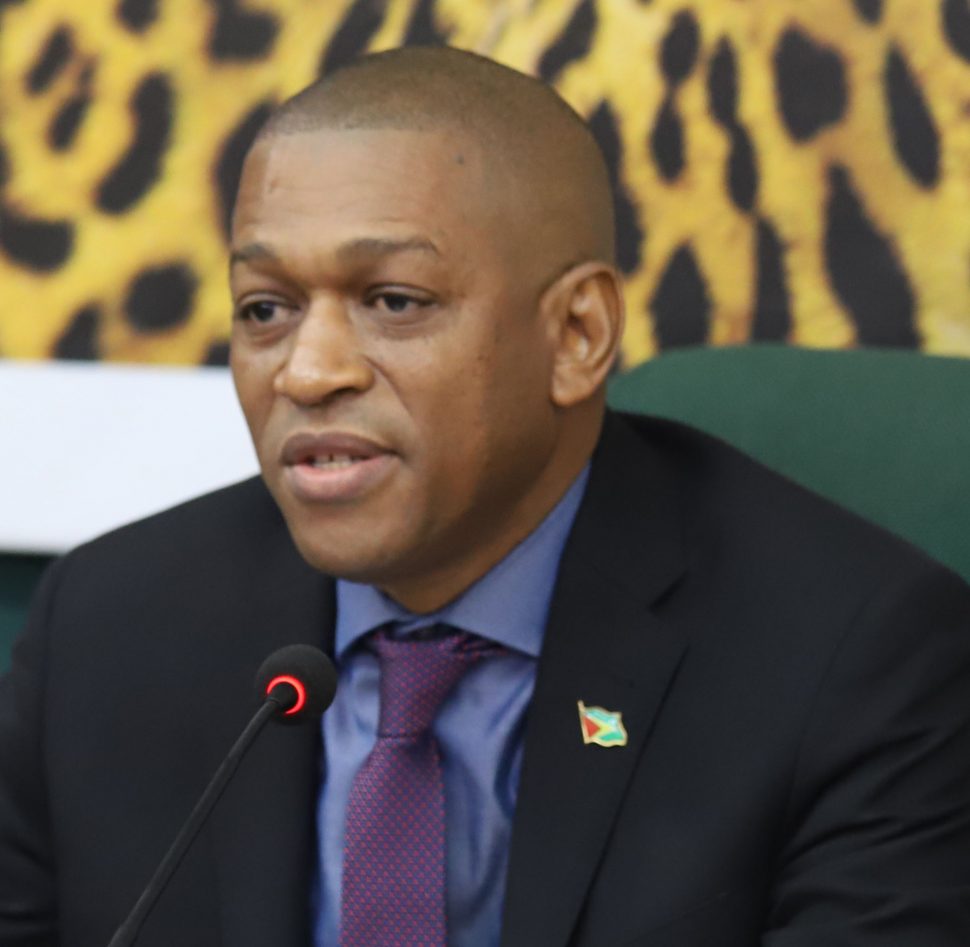Continuing his criticism of government over its alleged maladministration of the burgeoning petroleum industry, Opposition Leader Bharrat Jagdeo yesterday said that World Bank approval does not justify the sale of Guyana’s oil in breach of the country’s procurement laws.
“The World Bank cannot direct that we break procurement laws,” Jagdeo told reporters during a press conference yesterday, while addressing claims by Director of the Department of Energy (DoE) Dr Mark Bynoe that the World Bank had no issues with government’s plan to invite companies to bid to buy Guyana’s first three oil cargoes.
In response to arguments that the method used by the DoE breaches local procurement laws, Bynoe has said that no procurement laws were breached, and that the plan was examined and found to be acceptable by the World Bank.
Auditor General Deodat Sharma has said that the transaction will be probed. “There are a lot of things that just don’t make sense because you have an explanation that there was no procurement and no law was breached but a sale is a service and it is a procedure… So, we will audit the process to ensure it is transparent. The Audit Office will look at the whole process,” Sharma told Stabroek News last week.
“It makes me very upset that we pander so much,” said Jagdeo yesterday. He claimed that the decision to proceed with the process in those circumstances amounted to ceding sovereignty.
The DoE, by way of a press release, shared on Tuesday that subject to a completion contract, Shell Western Supply and Trading Limited has been selected to buy Guyana’s first three oil cargoes.
The selection marks the near completion of Phase 1 of the DoE’s two-step marketing process, with the second step being an open market Request for Proposals (RFP), which is to be launched in 2020 for a marketing agent to market Guyana’s crude entitlements from the Liza 1 on a term basis. This process was utilised, the DoE said, to introduce Guyana’s grade of petroleum into the market in a stable and structured manner, and as a result, realise a fair market value for the crude.
On December 13th, financial news service Bloomberg reported that government had sent a letter to refiners around the globe inviting them to bid for three million barrels of Liza Blend crude, which Guyana will begin exporting next year. There was no prior announcement of the planned bidding, and in the wake of the report, the DoE rushed to explain the nature and details of its plans, and explained that its intention was to conclude the process now underway before going public in order to protect government’s negotiating position.
Jagdeo said that the purported justification is the latest in a stream of failings suffered by the government in its management of the fledgling industry.
Other failings include the failure to promulgate a local content policy regarding the petroleum sector and the failure to establish an independent entity to regulate the petroleum sector, among others.
Jagdeo also iterated criticism of the legal framework of the intended Natural Resources Fund, established by the Natural Resources Fund Act, which he said is riddled with issues, including extensive powers given to the Minister of Finance.
Jagdeo also criticised the way in which government has been utilising the US$20 million loan it obtained from the World Bank earlier this year, saying that the funds should be used more to qualify local professionals, as opposed to hiring foreign consultants. As much as half of the funds, which flowed from a deal signed in May, have been used to hire foreign consultants, he claimed.





